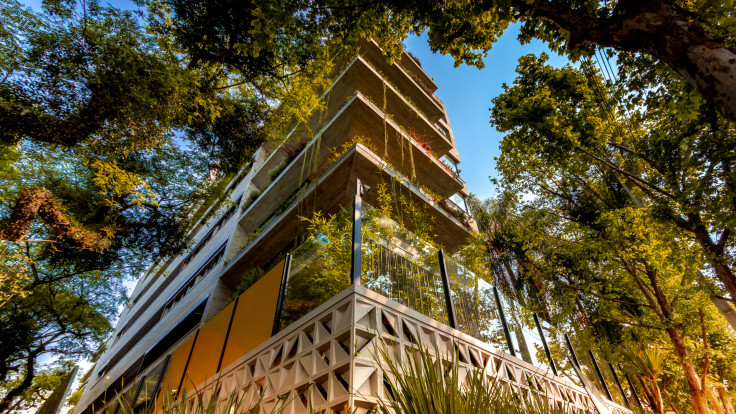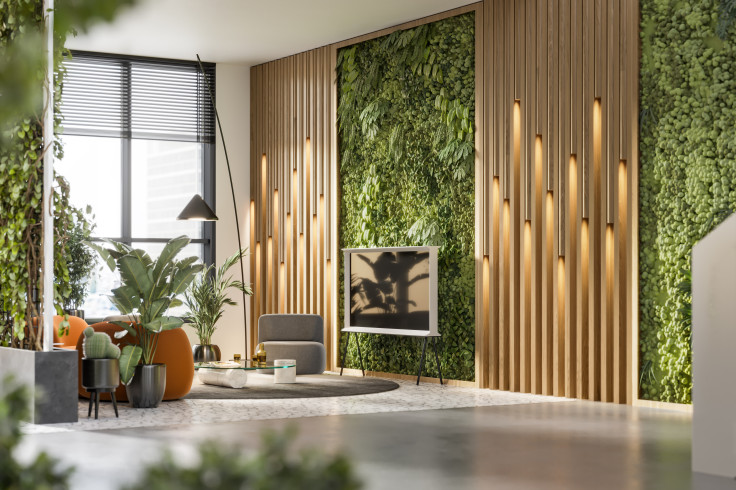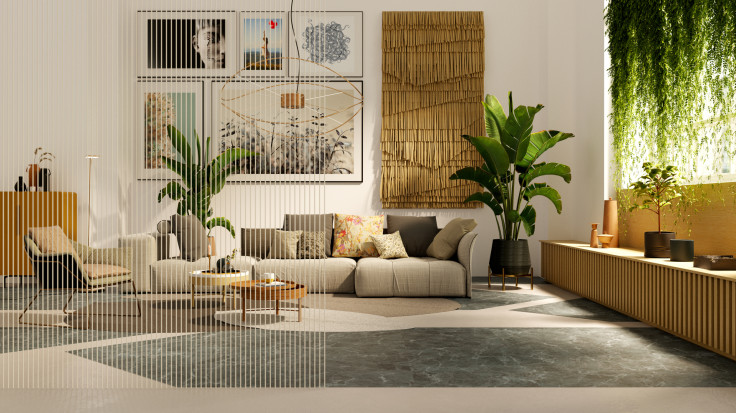Toyin-Ann Yerifor discusses the Importance of Biophilic Design in Green Buildings For Improved Wellbeing
In today's increasingly urbanized world, the health and well-being of building occupants are more important than ever. This is where sustainable building practices and biophilic design come into play, creating healthier, more comfortable, and more productive environments. Toyin-Ann Yerifor, a Sustainable Design Consultant, has dedicated her career to this very cause, leveraging her extensive experience and knowledge to make a tangible impact on people's lives and their surroundings.
As an accomplished expert in the green building industry, Toyin-Ann holds multiple degrees and certifications, including a Master of Architecture in Advanced Environmental and Energy Studies, an MBA, and a Master of Computer Science & Engineering. In addition to her impressive educational background, Toyin-Ann is a Passivhaus-trained expert specializing in designing and building spaces that enhance human well-being and performance. Currently, she is a Ph.D. researcher at the University of Northampton in Sustainability Leadership.

With over two decades of experience as a design consultant, educator, and sustainability advocate, Toyin-Ann has successfully delivered complex global construction projects as Project Director and Design Lead. Fluent in English and French, she has led multiple design projects across Europe, North America, West Africa, and Asia. Her approach to sustainable design is both holistic and regenerative, driven by an authentic ambition for exploring new and innovative ways to construct while minimizing a project's environmental impact.
Biophilic design is a central aspect of Toyin-Ann's work. Biophilia, a term coined by biologist E.O. Wilson, refers to the innate human affinity for nature and living systems. Biophilic design, therefore, is an architectural approach that embraces this affinity by integrating natural elements, materials, and processes into buildings and urban spaces. By doing so, it seeks to create environments that not only promote sustainability but also support human health, well-being, and productivity.
Biophilic design has been shown to significantly improve occupant well-being. The presence of natural elements, such as plants, water features, and natural light, can reduce stress, improve cognitive function, and boost mood. For example, studies have found that indoor plants can remove toxins and purify the air, thereby reducing symptoms of Sick Building Syndrome (SBS). Additionally, access to natural light has been linked to improved sleep quality and overall mental health.

A growing body of research also indicates that biophilic design can positively impact productivity in work environments. Access to natural light, views of nature, and natural materials can lead to increased focus, creativity, and job satisfaction. Moreover, biophilic design can reduce absenteeism by creating healthier and more enjoyable spaces for employees.
Biophilic design principles also inherently support green building practices. By utilizing natural materials and mimicking natural processes, these designs can reduce a building's ecological footprint. For example, green roofs and walls can reduce energy consumption by providing natural insulation and cooling. Similarly, passive solar design can help regulate indoor temperatures and reduce the need for artificial heating and cooling systems.
In a world that is increasingly decentralized and remote, Biophilic design can promote social connections within communities by creating inviting, engaging, and comfortable spaces. These spaces can foster interaction, collaboration, and a sense of belonging among occupants. Furthermore, biophilic design can create opportunities for environmental education and awareness, inspiring occupants to become more environmentally conscious in their daily lives.
Investing in biophilic design can lead to long-term economic benefits for both building owners and occupants. Green buildings with biophilic elements have been shown to have higher property values, lower vacancy rates, and reduced operating costs. Additionally, healthier and more productive occupants can contribute to the overall economic success of businesses operating within these spaces. In combination with biophilic design, Green practices can create environments that not only promote occupant well-being but also contribute to the health of the planet.

By prioritizing biophilic design and its resultant occupant well-being, Toyin-Ann''s approach to sustainable design transcends conventional architectural norms. Her expertise in creating high-performance, low-energy buildings not only minimizes the environmental impact but also ensures the longevity of these structures. As a result, Toyin-Ann's designs provide lasting value to occupants and the community as a whole.
However, Toyin-Ann's expertise in sustainable design extends beyond architecture, as she is deeply committed to helping leaders grow both professionally and personally. Through her leadership programs, she helps high-performing, overworked executives create habits around energy, well-being, values, and empathy. Her methods reflect the belief that effective leadership starts with leading oneself. This approach ties into her ultimate goal: fostering the well-being of people and their environment.
Drawing inspiration from the wisdom of C.S. Lewis, Toyin-Ann believes that while one cannot change the past, it is possible to shape the future. Her vision for the future is one where sustainability and wellbeing are not only possible but prioritized, creating a world where people and the planet thrive together. She is dedicated to being an advocate for sustainable design and well-being practices in the U.S. and globally.
Toyin-Ann's ultimate dream is to develop a sustainable city that improves the well-being of its inhabitants and elevates the quality of their lifestyle. By focusing on the integration of biophilic design and sustainable building practices, she aims to create urban environments that not only minimize their ecological footprint but also foster a strong sense of community and well-being among residents.
As cities around the world grapple with the challenges of rapid urbanization, climate change, and resource scarcity, the need for sustainable solutions has never been more pressing. By embracing the principles of biophilic design and sustainable building practices, visionaries like Toyin-Ann Yerifor are leading the way toward a future where both human well-being and environmental health are nurtured and protected.
With her expertise and passion for creating high-performance, low-energy, and healthy buildings, Toyin-Ann serves as an inspiration to those in the sustainable design field and beyond. As a leader and advocate for sustainability, she exemplifies the notion that through perseverance, innovation, and a commitment to the well-being of people and their environment, it is possible to shape a brighter, greener, and more resilient future for all. As Toyin-Ann continues to pursue her dream, her work will undoubtedly leave a lasting legacy in the realm of green building and beyond.





















